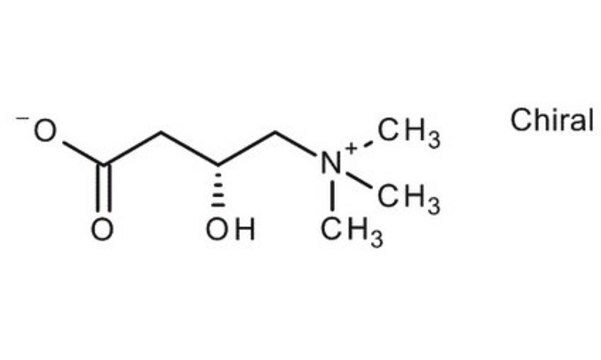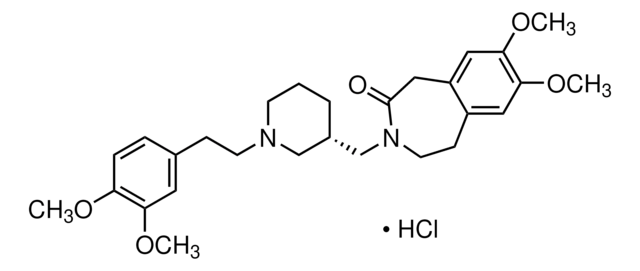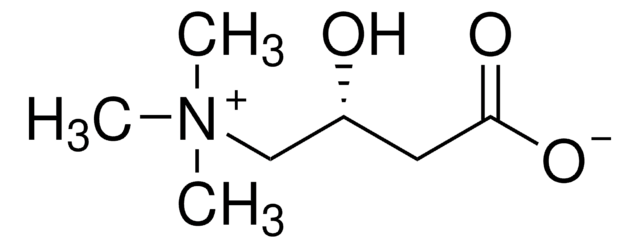Z0127
Zatebradine hydrochloride
≥98% (HPLC), powder
Synonym(s):
7,8-Dimethoxy-3-[3-[-N-[2-(3,4 dimethoxyphenyl)ethyl]-N-methylamino]propyl]-1,3,4,5-tetrahydro-2H-3-benzazepin-2-one hydrochloride, UL-FS49
About This Item
Recommended Products
Quality Level
Assay
≥98% (HPLC)
form
powder
storage condition
desiccated
color
white
solubility
H2O: >10 mg/mL
originator
Boehringer Ingelheim
storage temp.
2-8°C
SMILES string
Cl[H].COc1ccc(CCN(C)CCCN2CCc3cc(OC)c(OC)cc3CC2=O)cc1OC
InChI
1S/C26H36N2O5.ClH/c1-27(13-9-19-7-8-22(30-2)23(15-19)31-3)11-6-12-28-14-10-20-16-24(32-4)25(33-5)17-21(20)18-26(28)29;/h7-8,15-17H,6,9-14,18H2,1-5H3;1H
InChI key
ZRNKXJHEQKMWCH-UHFFFAOYSA-N
Application
- as an If blocker to study its effects on cardiomyocyte clusters (CMCs)
- as a hyperpolarization-activated and cyclic nucleotide-gated (HCN) channel inhibitor to study its effects on viability of degenerating rod or cone photoreceptors in mice
- as a bradycardiac agent to study its effects on tachycardia and elevated temperature in fish
Biochem/physiol Actions
Features and Benefits
Storage Class Code
11 - Combustible Solids
WGK
WGK 3
Flash Point(F)
Not applicable
Flash Point(C)
Not applicable
Personal Protective Equipment
Choose from one of the most recent versions:
Certificates of Analysis (COA)
Don't see the Right Version?
If you require a particular version, you can look up a specific certificate by the Lot or Batch number.
Already Own This Product?
Find documentation for the products that you have recently purchased in the Document Library.
Our team of scientists has experience in all areas of research including Life Science, Material Science, Chemical Synthesis, Chromatography, Analytical and many others.
Contact Technical Service








